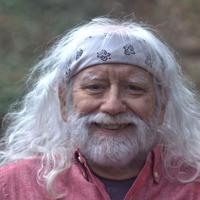Getting fired is the Universe telling you that you’re supposed to be doing something else…
It was late Wednesday afternoon at the Sacramento Business Journal in 1990, I was finishing up my seventh story in three months on an alleged racketeer contractor.
Lee Wessman, my editor, called me into his office to tell me he was laying me off because I was the least productive reporter in the newsroom.
Of course, I was. I was only a reporter three days a week. On Thursdays and Fridays, I was the copy editor: “Last eyes” on the weekly newspaper before we went to press every Thursday. (On Fridays, I proofed next week’s classified ads.)
The other reporters worked five days a week.
Lee praised “Iron Mike” as the most prolific reporter for the paper.
I pointed out Mike also made the most mistakes. Once, we had to remake the entire front page on deadline because I noticed that Mike had written about a building at the “intersection” of two well-known streets that didn’t cross.
We had to pull the story because it was before cell phones, and Mike had already left for the day.
After that, Lee ruled that no reporters were allowed to leave on deadline Thursdays until I had cleared their stories.
Without warning
I was in a state of shock. I had not seen this coming.
I thought I’d been doing a good job both as a reporter and editor. I wrote almost all the headlines, proofed all the major news stories, and as a reporter, I’d even created an enterprising new beat: business education.
Lee was explaining it was a budget cut, and that I should go to Laura Jean’s office, pick up my check, take my personal stuff and go home.
All I could think of to say was, “Could I at least finish my story?”
Lee just looked at me and said, “That’s very professional of you.” He gave me permission to finish my story.
In a zombie state, I went to Laura Jean’s office. Laura Jean was a stunning blonde and usually a lot of fun, but she was all business as she gave me my check, had me sign some papers and turn over my key to the building.
If she had any feelings about my departure, she kept them to her stone-faced self.
I walked back to my desk. I had a story, my last story, to write about the corrupt general contractor who had “B-K’ed” (bankrupted) subcontractors from San Diego up the Central Valley all the way to Stockton — and now he was moving into Sacramento.
This arrogant bully was clearly running a RICO (Racketeer Influenced and Corrupt Organization) enterprise, but I couldn’t prove it. I’d talked to cheated subcontractors and suppliers, arson investigators, the California Contractors State License Board, his three staff lawyers, his thugs who wouldn’t go on the record, and the Big Kahuna hisself, pinky ring and all.
“You’re after me because I’m Jewish,” he growled. I didn’t know he was Jewish until he told me, but it was irrelevant to me.
He was used to intimidating people, but I’d dealt with his type in Hollywood. To me, he was just another blowhard. I didn’t believe anything he said, but I quoted him fairly and accurately.
Write off
As hard as it was to concentrate, I fiercely focused on writing the story. I couldn’t face my colleagues. I felt ashamed and humiliated.
After the Auburn Journal, I was proud to be working for a professional newspaper with Wall Street Journal standards.
I was walking a narrow line between truth and libel. Without people on the record, all I could do was report on the suspicious fires and unusual number of “incidents” on this notorious contractor’s jobsites.
I finished the story shortly before seven and looked up in surprise to see that everybody had left. I was the only one left in the building.
Umm, you don’t leave a fired employee alone in the building. You just don’t do that. I knew that because I was the employment law reporter.
In some workplaces, you get escorted out by an armed guard because fired workers have been known to trash the workplace, seriously damage equipment and computer systems, or even commit suicide.
Whether leaving me alone was from carelessness or trust, I couldn’t know. I was just grateful to have kept a shred of dignity by not having to face my colleagues in disgrace.
It never occurred to me to do anything evil to this place. I wasn’t angry. I was hurt and humbled.
From the ashes
Two days later, on Friday, there was a card for me in the mail. It showed an upside-down cow floating above a field. The card was signed by everybody in the newsroom wishing me well.
That was an unexpected kindness. I cried.
As it was, losing my job was the best thing that could have happened to me. Several months later, I got a job at twice the salary because Lee wrote a great letter of reference for me.
I became the editor of the California Employee Relations Report, a very expensive legal newsletter for lawyers, legislators and lobbyists at the California state capital.
Essentially, in the space of 10 years, I’d gone from covering the little city of Colfax for the Auburn Journal to covering the sixth largest economy in the world for The Bureau of National Affairs, Inc.
The Universe works in mysterious ways.


